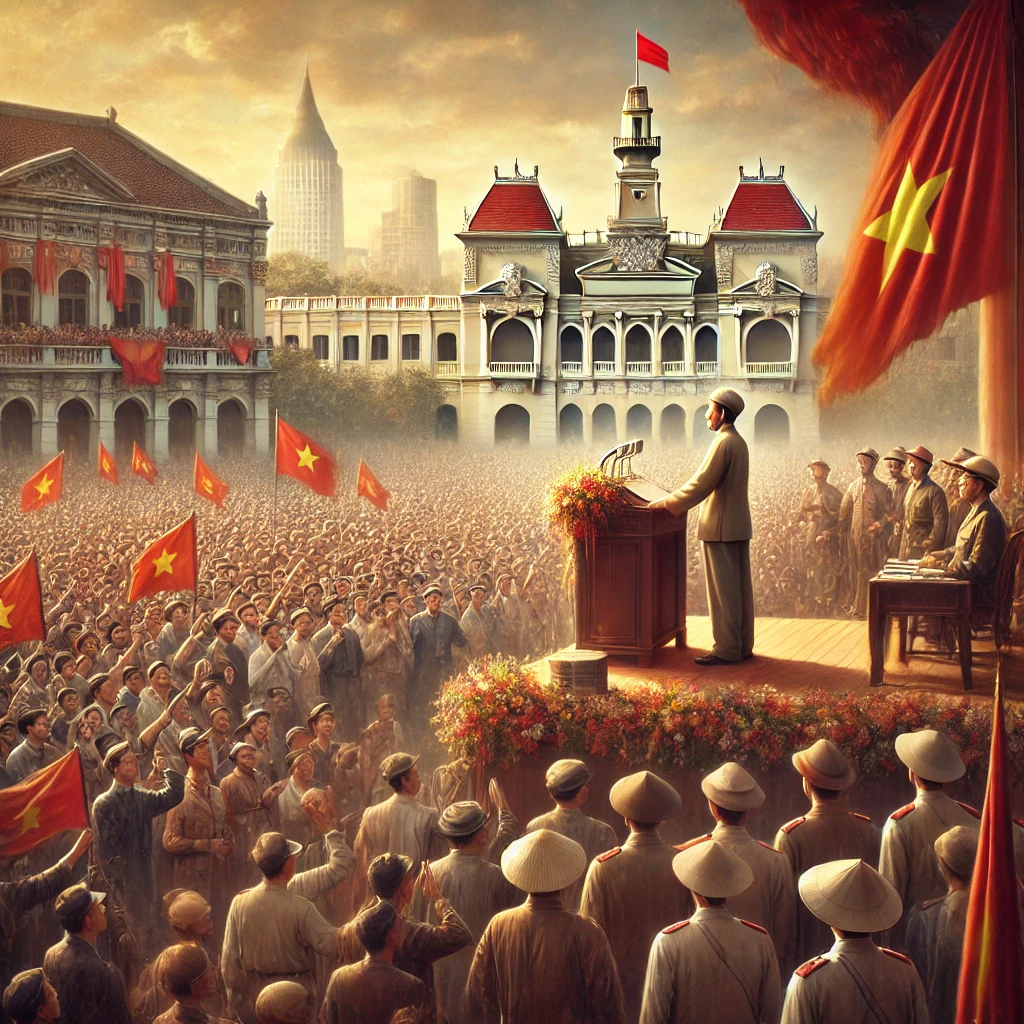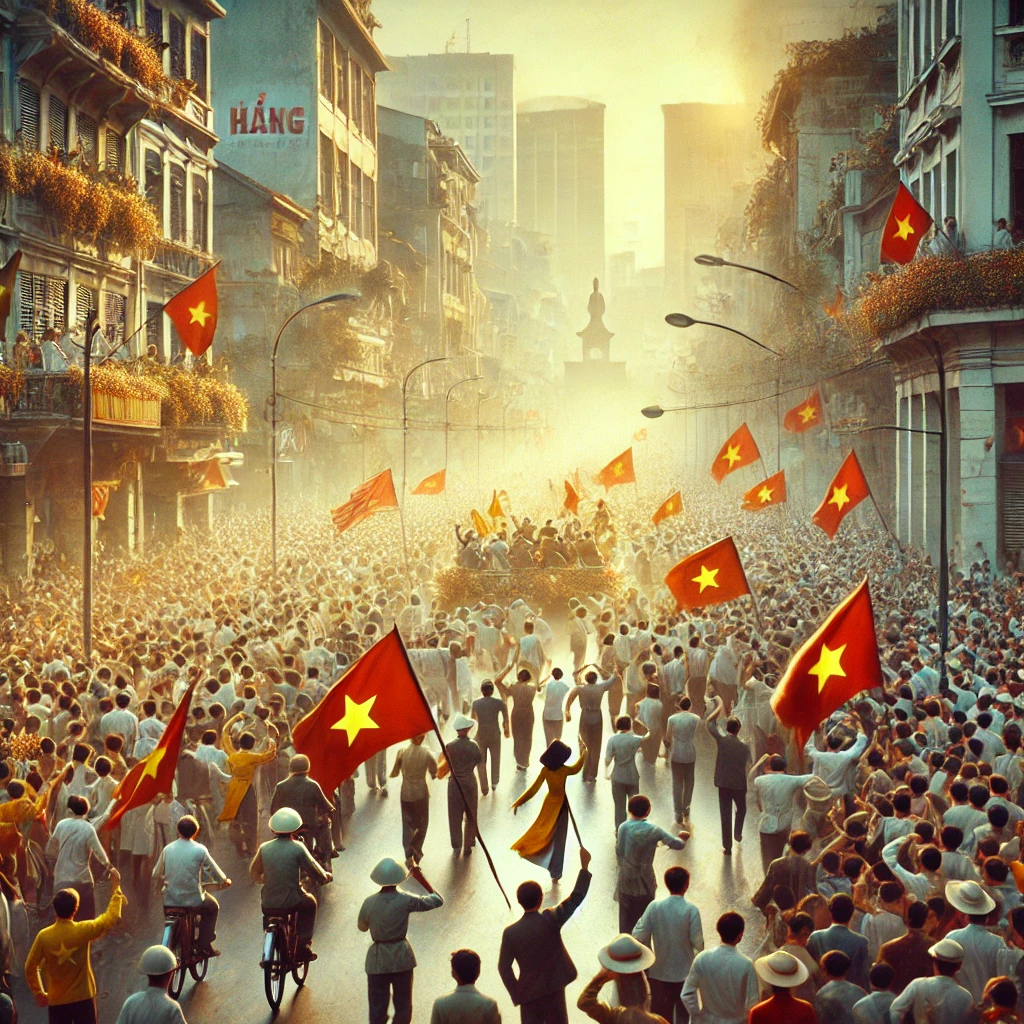On September 2, 1945, Ho Chi Minh, leader of the Viet Minh, declared Vietnam’s independence from French colonial rule. This declaration marked a significant moment in Vietnam’s struggle for sovereignty and set the stage for the country’s future political landscape. The proclamation came at the end of World War II and was a pivotal moment in the larger context of decolonization movements occurring around the world.

The Path to Independence
The roots of Vietnam’s quest for independence can be traced back to its long history of resistance against foreign domination. During World War II, the Japanese occupied Vietnam, displacing French colonial authorities. After Japan’s defeat in 1945, the power vacuum left by the retreating Japanese forces provided an opportunity for Vietnamese nationalists to assert their demands for self-rule. The Viet Minh, led by Ho Chi Minh, emerged as the dominant force advocating for independence from both Japanese and French control.
Ho Chi Minh’s declaration on September 2, 1945, took place in Hanoi’s Ba Dinh Square, where he announced the establishment of the Democratic Republic of Vietnam. His speech was heavily influenced by the U.S. Declaration of Independence and emphasized the right of all nations to self-determination. The declaration was a culmination of years of struggle and negotiation, reflecting the strong nationalist sentiment among the Vietnamese people.

International Reaction and Consequences
The declaration of independence was met with a mixed international reaction. While the United States and other Allied nations were sympathetic to the cause of decolonization, they were also wary of the rise of communism in Southeast Asia. The French, who had been eager to reassert their control over Vietnam after World War II, rejected Ho Chi Minh’s declaration and sought to reestablish their colonial dominance. This led to a protracted and violent conflict between French forces and the Viet Minh, known as the First Indochina War.
The struggle for independence continued until 1954, when the Geneva Accords were signed, leading to the end of French colonial rule and the division of Vietnam into North and South. Ho Chi Minh’s leadership in the North and the establishment of the Democratic Republic of Vietnam set the stage for the subsequent conflict between the communist North and the anti-communist South, which eventually escalated into the Vietnam War.

Legacy and Impact
Ho Chi Minh’s declaration of independence remains a significant milestone in Vietnamese history. It symbolizes the country’s enduring struggle for self-determination and its resistance against colonialism. The events of September 2, 1945, are commemorated annually in Vietnam as National Day, celebrating the nation’s sovereignty and the enduring legacy of its revolutionary leaders.
The impact of the declaration reverberated beyond Vietnam’s borders, influencing global perceptions of colonialism and decolonization. The struggle for Vietnamese independence was part of a broader wave of decolonization that reshaped the geopolitical landscape of the 20th century. It highlighted the growing global movement toward self-determination and the end of colonial empires.
Today, Vietnam’s independence is celebrated as a testament to the resilience and determination of its people. The legacy of September 2, 1945, continues to inspire and inform Vietnam’s national identity and its role in the global community. The country’s journey from colonial rule to independence remains a powerful narrative of resistance, perseverance, and the pursuit of freedom.
